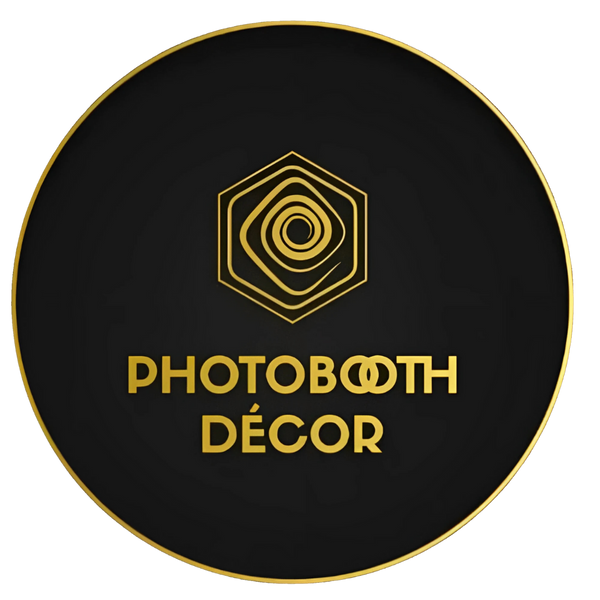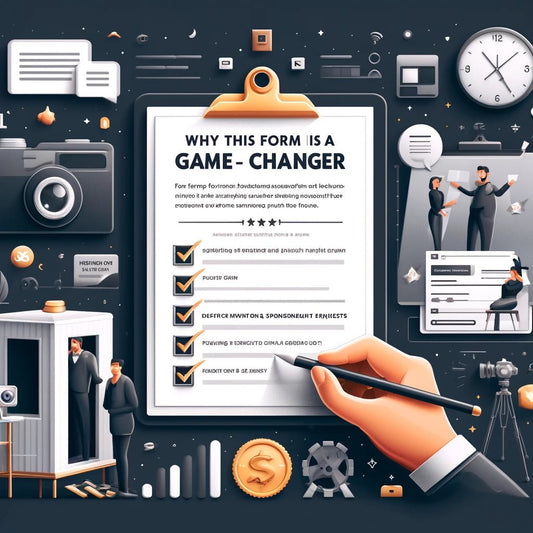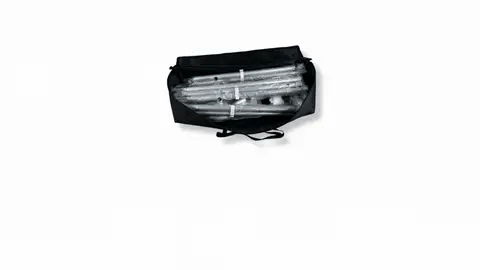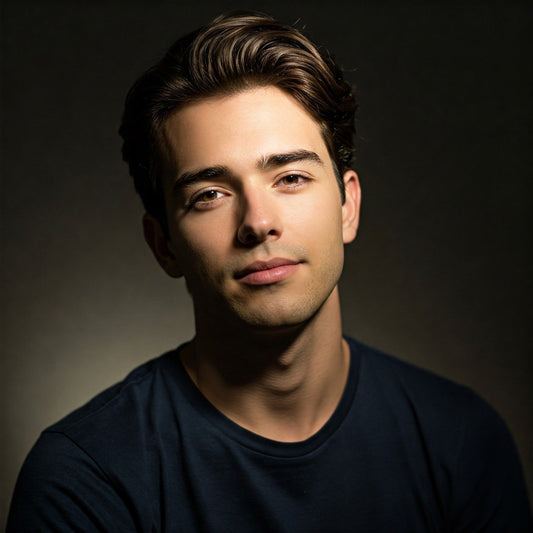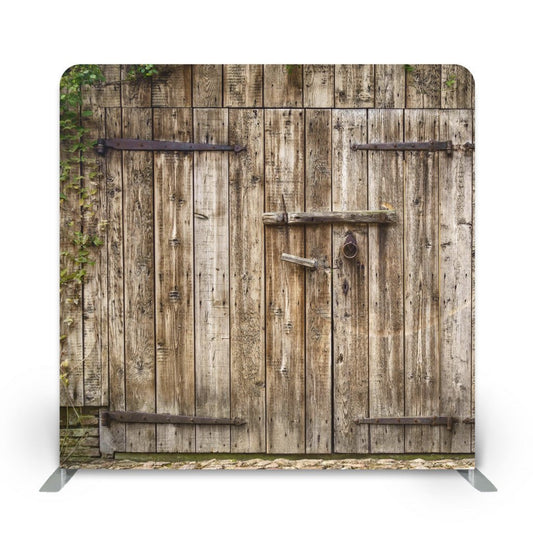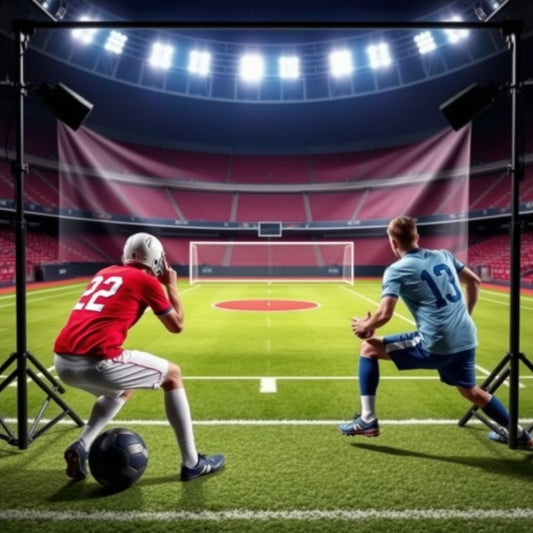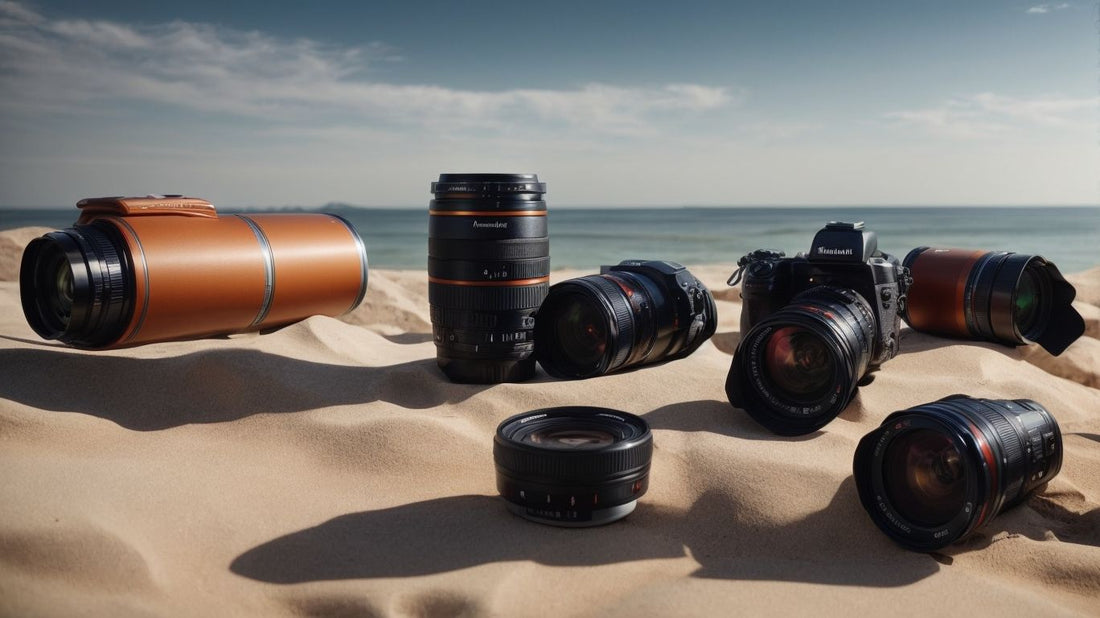
Top Camera Recommendations for Events: Capture Every Moment with Perfect Clarity
Share
.jpg)
Capturing memorable moments at events requires a reliable and high-quality camera. Choosing the right camera for event photography involves considering various factors to ensure optimal performance and desired image quality. Here are some factors to consider when selecting a camera for events:
1. Type of Event: Different types of events may have specific photography requirements. For instance, sports events may require a camera with fast autofocus and continuous shooting capabilities, while weddings may require a camera with excellent low-light performance.
2. Lighting Conditions: Events can take place in different lighting conditions, including indoor venues with artificial lighting or outdoor settings with natural light. Consider a camera that performs well in low light or one that allows for adjustments in various lighting situations.
3. Desired Image Quality: Determine the level of image quality you require for your event photography. Consider factors such as resolution, dynamic range, and color accuracy to choose a camera that delivers the desired results.
4. Budget: Set a budget for your camera and accessories. There are cameras available at different price points, so it's essential to find a balance between your requirements and budget.
When it comes to types of cameras for event photography, there are several options available, including DSLR cameras, mirrorless cameras, and compact cameras. Each has its advantages and considerations.
For event photography, some recommended cameras include the Canon EOS 5D Mark IV, Nikon D750, Sony Alpha a7 III, and Fujifilm X-T3. These cameras offer excellent image quality, advanced features, and reliable performance for capturing events effectively.
In addition to the camera itself, there are essential accessories to consider for event photography, such as lenses, external flash, tripod, and battery grip. These accessories can enhance your photography and provide versatility in different shooting situations.
To make the most of your recommended camera for event photography, here are some helpful tips: familiarize yourself with the camera settings, use the right lens for the occasion, focus on capturing candid moments, and always be prepared with extra batteries and memory cards.
With careful consideration and the right equipment, you can successfully capture memorable moments at events through your photography.
Factors to Consider When Choosing a Camera for Events
When selecting a camera for your upcoming event, it's crucial to consider various factors that will significantly impact the outcome of your photos. From the type of event you're capturing to the lighting conditions and desired image quality, each aspect plays a pivotal role. Of course, your budget is also a key consideration. Let's dive into these factors to help you make the right camera choice and ensure every event moment is captured flawlessly.1. Type of Event
Different types of events require different types of cameras to capture the best moments. When choosing a camera, it's important to consider the nature of the event. For example, for outdoor events, the recommended camera is the Canon EOS 5D Mark IV. For indoor events, the Sony Alpha a7 III is recommended. For sports events, the Nikon D750 is the ideal choice. And for concerts and performances, the Fujifilm X-T3 is recommended.
Each camera has specific features that make it suitable for different events. The Canon EOS 5D Mark IV, with its weather sealing, is perfect for outdoor events. On the other hand, the Sony Alpha a7 III excels in low-light conditions, making it ideal for indoor events. The Nikon D750 is designed for capturing fast action in sports events. Lastly, the Fujifilm X-T3, with its high-resolution sensor and fast autofocus, is well-suited for concerts and performances.
Remember to choose the camera that meets the specific requirements of the event you are capturing.
2. Lighting Conditions
When selecting a camera for events, lighting conditions have a significant impact. To guarantee optimal performance, there are several factors to consider. First, it is essential to assess the camera's low-light capabilities. Cameras with high ISO sensitivity and low noise performance will excel at capturing well-lit images in dimly lit venues. Additionally, the dynamic range of the camera plays a crucial role. Cameras with a wide dynamic range can capture details in both highlights and shadows, ensuring well-exposed images under various lighting conditions. Another aspect to check is the camera's compatibility with external flash units. This enables the use of additional lighting when necessary. Lastly, it is vital to look for cameras with accurate white balance settings to ensure natural-looking colors under different lighting conditions. By carefully considering these factors, one can choose a camera that performs exceptionally well in various lighting scenarios, resulting in stunning event photos.
3. Desired Image Quality
The desired image quality is an essential factor to consider when choosing a camera for events. The table below highlights different image quality factors for various types of cameras:
| Type of Camera | Key Image Quality Factor |
|---|---|
| DSLR Cameras | High-resolution images with excellent color reproduction |
| Mirrorless Cameras | Sharp and detailed images with accurate autofocus |
| Compact Cameras | Convenient portability with decent image quality |
During an event such as a wedding, the desired image quality played a crucial role in the photographer's choice of using a DSLR camera. This camera effectively captured the intricate details of the bride's dress and the vibrant colors of the decorations. The high image quality delivered stunning photos that truly encapsulated the essence of the special day.
4. Budget
When selecting a camera for events, your budget is a vital factor to take into account. Take into consideration the following options depending on your budget:
- Low Budget (Under $500): Find entry-level DSLR or mirrorless cameras such as the Nikon D3300 or Sony a6000.
- Mid-range Budget ($500-$1000): Explore cameras like the Canon EOS Rebel T7i or the Fujifilm X-T20 for improved image quality and advanced features.
- High Budget (Above $1000): Invest in professional-grade cameras like the Nikon D850 or the Sony Alpha a7R III, which provide exceptional image quality and versatility.
Remember, while it is important to consider your budget, it is also crucial to prioritize features and performance that align with your photography requirements.
Types of Cameras for Event Photography
Looking to capture those unforgettable moments at events? Let's dive into the world of event photography and explore the different types of cameras that can make your shots truly outstanding. From the versatility of DSLR cameras to the lightweight appeal of mirrorless options, and even the convenience of compact cameras, each sub-section will uncover the unique advantages that cater to your specific photography needs. So, grab your gear and let's find the perfect camera to seize those memorable event experiences!1. DSLR Cameras
DSLR cameras, also known as digital single-lens reflex cameras, are a popular choice for event photography due to their versatility and excellent image quality. Here are some key points to consider when it comes to DSLR cameras:
- Versatility: One of the main advantages of DSLR cameras is their ability to offer interchangeable lenses, allowing you to easily adapt to different shooting situations and capture a variety of perspectives.
- Image quality: DSLR cameras produce high-resolution, detailed images thanks to their larger image sensors and the option to shoot in RAW format, which provides greater flexibility for post-processing and ensures that every detail is captured faithfully.
- Manual controls: An important aspect of DSLRs is the full manual control they provide over settings such as aperture, shutter speed, and ISO. This gives photographers creative freedom to achieve their desired effects and make precise adjustments according to the lighting conditions.
- Speed and performance: DSLRs are equipped with fast autofocus systems and high burst rates, making them ideal for capturing fast-moving subjects in dynamic event environments. This allows photographers to never miss a moment and capture all the action with precision.
Pro-tip: To capture group shots and effectively cover wide event spaces, it is recommended to invest in a fast, wide-angle lens. This type of lens allows you to include more elements in the frame and create a sense of depth, enhancing the overall composition of your event photographs.
2. Mirrorless Cameras
- When it comes to choosing a camera for events, mirrorless cameras are an excellent option. They offer a blend of functionality, portability, and image quality. Here are some reasons why mirrorless cameras are a top choice:
- Compact and lightweight: Mirrorless cameras are smaller and lighter than DSLR cameras, making them easier to carry around during events.
- Fast autofocus: Mirrorless cameras use advanced autofocus systems that allow for quick and accurate focusing, perfect for capturing fast-moving subjects.
- Electronic viewfinder: With an electronic viewfinder, you can preview the exposure and white balance settings in real-time, ensuring you get the perfect shot.
- Excellent image quality: Mirrorless cameras are equipped with large sensors that produce high-resolution images with impressive detail and dynamic range.
3. Compact Cameras
- Compact cameras, which are known for their lightweight and portable nature, are perfect for event photography.
- These cameras provide convenience due to their compact size, making it easy to carry them around and quickly capture spontaneous moments.
- Compact cameras are designed to be user-friendly, catering to both beginners and experienced photographers.
- With a variety of shooting modes and automatic settings, compact cameras make it simpler to capture amazing shots in various lighting conditions.
- Some compact cameras even come equipped with built-in Wi-Fi, allowing for instant sharing of photos on social media platforms.
The first ever compact camera, known as the Kodak Retina, was invented in 1934 by German designer Nagel Camerawerk. It completely transformed the world of photography with its small size and advanced features, making it accessible to a wide range of individuals. Since then, compact cameras have undergone continuous improvements, offering better image quality, advanced functionality, and sleek designs. Today, they remain a popular choice among event photographers who seek a lightweight, versatile, and user-friendly camera.
Recommended Cameras for Event Photography
Looking to capture the perfect moments at your next event? Look no further! In this section, we'll dive into the world of recommended cameras for event photography. From the powerful Canon EOS 5D Mark IV to the versatile Nikon D750, we'll explore top-notch options that are sure to meet your photography needs. Get ready to discover the impressive capabilities of the Sony Alpha a7 III and the cutting-edge features of the Fujifilm X-T3. Let's find the ideal camera to ensure your event photography shines!1. Canon EOS 5D Mark IV
The Canon EOS 5D Mark IV is a top choice for event photography due to its exceptional image quality, versatility, and reliability.
- High Image Quality: With a 30.4-megapixel full-frame sensor and advanced image processing, the Canon EOS 5D Mark IV delivers stunning and detailed photos in various lighting conditions.
- Fast and Accurate Autofocus: The Canon EOS 5D Mark IV features a 61-point AF system with enhanced subject tracking, ensuring sharp focus on moving subjects.
- Robust Build: Its durable magnesium alloy body and weather sealing make the Canon EOS 5D Mark IV suitable for shooting in different environments.
- Versatile Shooting Modes: From capturing action shots at 7 frames per second to recording high-quality 4K videos, the Canon EOS 5D Mark IV offers flexibility and creative options.
- Extensive Lens Selection: The Canon EF lens lineup provides a wide range of options to suit different shooting styles and scenarios.
Fun Fact: The Canon EOS 5D Mark IV has a built-in GPS system that allows photographers to geotag their images, recording the exact location of where each photo was taken.
2. Nikon D750
- The Nikon D750, a popular choice for event photography due to its versatility and performance,
- features a 24.3MP full-frame sensor, allowing for excellent image quality and low-light performance.
- With 51 autofocus points and advanced tracking capabilities, the Nikon D750 can quickly and accurately focus on subjects, essential for capturing fast-paced events.
- Additionally, the camera offers an ISO range of 100-12800, expandable up to 51200, enabling you to shoot in challenging lighting conditions without sacrificing image quality.
- The tilting LCD screen of the Nikon D750 allows for easy framing and shooting from various angles, making it convenient for capturing different event perspectives.
3. Sony Alpha a7 III
The Sony Alpha a7 III, commonly known as the a7 III, is a highly recommended camera for event photography due to its exceptional features and performance.
- Image quality: With the Sony Alpha a7 III, you get to enjoy the benefits of its 24.2-megapixel full-frame sensor, which delivers stunning, high-resolution images with excellent dynamic range.
- Low-light capabilities: The a7 III truly shines in challenging lighting conditions, thanks to its impressive ISO range of 100-51200 (expandable to 50-204800). This allows the camera to produce low-noise images, ensuring your photos turn out great even in low-light situations.
- Continuous shooting: Don't worry about missing any important moments at fast-paced events with the a7 III's continuous shooting speed of up to 10 frames per second. Its impressive speed ensures that you capture every significant detail of the event.
- Autofocus system: The Sony Alpha a7 III features a highly sophisticated autofocus system with 693 phase-detection points and 425 contrast-detection points. This advanced system allows for accurate and quick autofocus, even in challenging low-light situations.
- Video capabilities: Alongside its exceptional photo capabilities, the a7 III supports high-quality 4K video recording. This means you can capture stunning videos alongside your photos, providing a complete visual experience of the event.
- Compact and versatile: Despite its powerful features, the Sony Alpha a7 III remains lightweight and compact. This makes it extremely convenient to carry around and allows you to effortlessly maneuver the camera in various event settings.
4. Fujifilm X-T3
The Fujifilm X-T3 is a highly recommended camera for event photography due to its impressive features and capabilities.
- Image quality: The X-T3 boasts a 26.1 megapixel X-Trans CMOS 4 sensor, delivering outstanding image resolution and clarity.
- Fast autofocus: It has a sophisticated autofocus system with phase detection pixels across the entire frame, ensuring quick and precise focus even in challenging lighting conditions.
- Continuous shooting: With a high-speed continuous shooting of up to 30 frames per second, the Fujifilm X-T3 is perfect for capturing fast-paced event moments.
- Video capabilities: It offers 4K video recording at 60 frames per second, giving you the ability to capture high-quality, cinematic footage during events.
- Ergonomics and durability: The Fujifilm X-T3 features a durable and weather-sealed body, along with intuitive controls and a comfortable grip, allowing for easy handling during long event shoots.
Fact: The Fujifilm X-T3 won the prestigious "Camera of the Year" award from the esteemed Photography News Awards in 2019.
Camera Accessories for Event Photography
When it comes to capturing stunning moments at events, having the right camera accessories is key. In this section, we'll dive into the world of camera accessories specifically tailored for event photography. From lenses that bring your subjects to life, to external flashes that illuminate every detail, and tripods for steady shots, we've got you covered. Plus, we'll explore the benefits of a battery grip to ensure you never miss a shot. Get ready to upgrade your photography game and capture the essence of every event.1. Lenses
When it comes to event photography, the selection of the right lens is crucial for capturing the best shots. Lenses play a vital role in determining the features and capabilities needed for different situations and events. Understanding your needs and the requirements of the specific event will enable you to make an informed decision. Here are some key factors to consider when choosing a lens for event photography:
1. Focal Length: The focal length you require depends on the type of shots you intend to take. Wide-angle lenses (24mm-35mm) are ideal for group shots and capturing the overall atmosphere. Standard lenses (50mm) offer a natural perspective, while telephoto lenses (70mm-200mm) allow you to zoom in on distant subjects effectively.
2. Aperture: The lens aperture is a crucial consideration, as it affects your ability to shoot in low-light conditions and achieve a shallow depth of field. Opt for a lens with a wide maximum aperture (e.g., f/2.8 or wider) to ensure you can capture more light and create pleasing background blur.
3. Image Stabilization: Image stabilization is particularly important when dealing with low-light environments or when shooting handheld. Look for lenses that have built-in stabilization to minimize camera shake, resulting in sharper images.
4. Versatility: If you want to cover a wide range of shots without frequently changing lenses, a zoom lens can be a practical choice. Zoom lenses with variable focal lengths, such as 24mm-70mm or 70mm-200mm, provide the flexibility you need.
By considering these factors, you can select the lens that best suits your event photography needs and effectively captures the desired moments. While having the right equipment is crucial, it is ultimately your skill and creativity that make a difference in producing memorable photographs.
Throughout history, lenses have played a significant role in photography, allowing photographers to capture iconic moments that shape our understanding of the world. From the wide-angle lenses used by photojournalists to document historical events to the telephoto lenses used by wildlife photographers to capture breathtaking encounters, lenses preserve our visual history. Today, photographers continue to push the boundaries of lens technology, opening up new possibilities for creative expression and storytelling.
2. External Flash
When choosing a camera for events, the external flash plays a crucial role in providing better lighting conditions, especially in low light environments. Here are some reasons why:
- Improved Lighting: An external flash enhances lighting conditions, particularly in situations with limited light.
- Flexible Angles: With an external flash, you have the ability to adjust the angle to control the direction and intensity of the light.
- Reduced Red-Eye: The external flash effectively minimizes the occurrence of red-eye in photos.
- Wider Coverage: Unlike the built-in flash, an external flash covers a broader area, ensuring even lighting throughout the frame.
- Creative Lighting Effects: External flashes offer the opportunity to achieve more imaginative lighting effects, such as bouncing the light off walls or using diffusers.
3. Tripod
A tripod is a crucial accessory for event photography as it provides stability and allows for steady shots. Here are some reasons why a tripod is important:
Stability: A tripod helps eliminate camera shake, especially in low-light conditions, resulting in sharper images.
Composition: Using a tripod allows you to carefully compose your shots, helping you achieve the desired framing and angles.
Long exposures: A tripod enables you to capture long exposure shots, such as light trails or starry night skies, without any blur.
Group shots: It's easier to capture group photos with everyone in the frame when using a tripod, as you can set up the camera and join the group.
4. Battery Grip
A battery grip, a versatile accessory for event photographers, is an essential tool that offers multiple benefits such as extended battery life and improved camera handling. When using a battery grip, there are several key points to keep in mind:
1. Extended battery life: By enabling the simultaneous use of two camera batteries, a battery grip effectively doubles the battery life during events.
2. Improved handling: Attaching a battery grip enhances the camera's size and ergonomics, providing a more comfortable grip, particularly for photographers with larger hands.
3. Vertical shooting: Battery grips often feature vertical shutter buttons and controls, facilitating easier portrait orientation shooting without straining the hand.
4. Added stability: The additional weight of a battery grip contributes to camera stability, minimizing the risk of camera shake and resulting in crisper, sharper images.
Fun fact: Battery grips are not limited to DSLR cameras; they are also compatible with select mirrorless camera models.
Tips for Event Photography with Recommended Cameras
Looking to up your event photography game? In this section, we've got you covered with some invaluable tips to make your shots truly stand out. From familiarizing yourself with camera settings to capturing those spontaneous candid moments, we'll take you through it all. Plus, we'll recommend the best cameras to ensure you have the right gear for the occasion. Get ready to capture stunning photos that will leave a lasting impression!1. Familiarize Yourself with the Camera Settings
Familiarizing yourself with the camera settings is crucial for capturing great shots at events. Here are some steps to help you understand your camera better:
- Familiarize yourself with the camera manual thoroughly to understand each setting and its functions.
- Experiment with different shooting modes like manual, aperture priority, and shutter priority to understand their effects on exposure and depth of field.
- Practice adjusting ISO, white balance, and exposure compensation to get desired results in different lighting conditions.
- Learn how to navigate and customize menu settings for quick access to frequently used features.
- Take the time to understand autofocus modes and focus points for capturing fast-moving subjects.
By familiarizing yourself with the camera settings, you'll be better prepared to adapt to different event scenarios and capture memorable moments.
True story: At a wedding reception, I was able to quickly adjust the camera settings to capture a beautiful candid shot of the couple dancing under a perfectly lit chandelier. The understanding of my camera's settings allowed me to capture the moment with precision, resulting in a cherished photograph for the couple.
2. Use the Right Lens for the Occasion
When photographing events, it is crucial to use the right lens in order to greatly enhance your shots. Here are some important considerations to keep in mind when choosing the appropriate lens for the occasion:
- 1. Determine the event type: Different events may necessitate the use of different lenses. For instance, if you are capturing landscapes or group shots, a wide-angle lens is highly recommended. On the other hand, for distant subjects or detailed portraits, an ideal choice would be a telephoto lens.
- 2. Consider the lighting conditions: In case the event has low light, it is beneficial to use a lens with a wide aperture, such as f/1.8. This will allow you to gather more light and produce clearer images.
- 3. Think about the desired effect: Are you aiming for a shallow depth of field to achieve artistic blur, or do you want everything to be in focus? To achieve the desired result, it is important to select a lens with the appropriate aperture and focal length.
- 4. Be mindful of the size and weight: If you anticipate carrying your camera for extended periods of time, opting for a lighter or more compact lens will provide added comfort.
Remember, the right lens selection holds the key to capturing the event in the best possible way. Therefore, take your time and experiment with different lenses to find the perfect fit for each occasion.
3. Capture Candid Moments
To capture candid moments during events, photographers can follow these tips:
1. Be Observant: Pay attention to the surroundings and look for natural interactions and emotions.
2. Use a Telephoto Lens: A telephoto lens allows you to maintain distance while capturing intimate moments without being intrusive.
3. Shoot in Burst Mode: Capturing candid moments is made easier by shooting in burst mode, increasing your chances of getting the perfect shot.
4. Be Stealthy: Avoid drawing attention to yourself by dressing appropriately and blending in with the crowd.
5. Anticipate Action: Stay alert and anticipate moments that are likely to unfold, such as speeches, laughter, or surprises.
In 1929, photographer Lewis Hine captured candid moments of child laborers, bringing awareness to their plight and contributing to the passage of child labor laws in the United States. His photographs, such as "Power House Mechanic," remain powerful reminders of how capturing candid moments can shape history.
4. Be Prepared with Extra Batteries and Memory Cards
Being prepared with extra batteries and memory cards is crucial to ensure you don't miss out on any important moments during an event shoot. Here are some essential steps to help you be fully prepared:
- First and foremost, check your camera's battery life and make sure they are fully charged before the event starts.
- Carry spare batteries at all times and keep them easily accessible for quick replacement.
- It is also important to bring multiple memory cards with sufficient storage capacity to handle the volume of photos you expect to capture.
- To stay organized, have a system in place to keep track of used and empty memory cards, such as separate cases or labeled pouches.
- Furthermore, make it a priority to regularly back up your photos during the event on a laptop or external hard drive. This will ensure that you can free up space for more shots.
In a real-life scenario, a photographer was covering a wedding when their camera suddenly ran out of battery during the couple's first dance. Luckily, they had prepared by carrying spare batteries, which allowed them to quickly replace the dead battery and continue capturing those precious moments without missing a beat.
Facts:Some Facts About Camera Recommendations for Events:
- ✅ Peak Design offers the Out Front bike mount that can be used for action cameras and smartphones with their Everyday cases.
- ✅ Camera Cubes from Peak Design can easily transform any bag into a camera-carrying accessory, providing flexibility for those who prefer non-camera bags.
- ✅ The Nikon Z8 is a full-frame mirrorless camera priced at $4000, offering similar features to the more expensive Z9 model but in a smaller body.
- ✅ The Google Pixel 8 and 8 Pro might not have the most impressive camera hardware, but their software optimization allows them to deliver top-notch image quality.
- ✅ The Wotancraft New Pilot is a highly durable and modular camera backpack with customizable configuration options, though it may not be the most stylish choice.
Frequently Asked Questions
1. What is the Nikon Z8 and what features does it offer?
The Nikon Z8 is a full-frame mirrorless camera that costs $4000. It offers most of the features found in the more expensive Z9 but in a smaller body.
2. Are the Google Pixel 8 and 8 Pro good options for photography despite their hardware?
Yes, the Google Pixel 8 and 8 Pro may not have the most impressive camera hardware, but their software power and tuning excellence allow them to produce top-notch image quality.
3. How is redundancy important for wedding and event photographers?
Redundancy is crucial for wedding and event photographers, with dual memory card slots and wireless file transfer being common practices for immediate image backup.
4. What camera is recommended for professional event photography?
The Canon EOS R3 is recommended as the ultimate professional camera with incredibly high performance. It offers a continuous shooting rate of 30 fps, a blackout-free viewfinder, and advanced autofocus features for capturing the perfect moment.
5. Should wedding and event photographers invest in high-resolution cameras?
Yes, high resolution is important for printing large portraits, and full-frame imaging sensors excel in low-light situations, making them the best choice for high-grade images.
6. What factors should be considered when buying a camera for events?
When buying a camera for events, factors such as camera performance, features, price, resolution, sensor, burst mode, and autofocus should be considered to ensure the best equipment for capturing outstanding performers in event photography.
